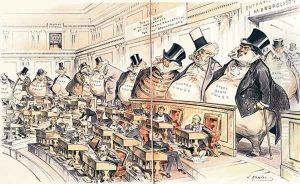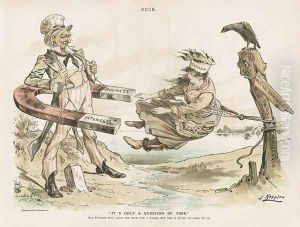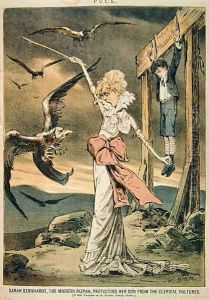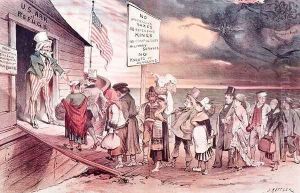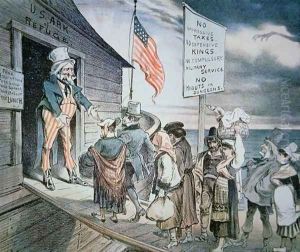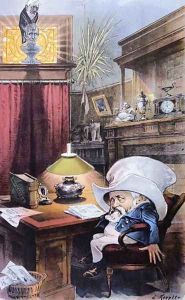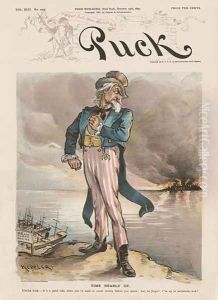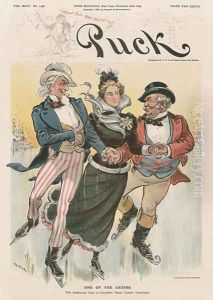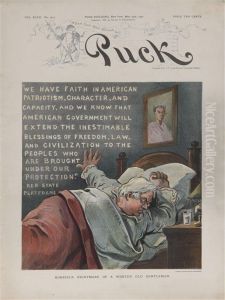Joseph Keppler Paintings
Joseph Keppler was an Austrian-born American cartoonist, caricaturist, and publisher, best known for founding the satirical magazine Puck. Born in Vienna, Austria, on February 1, 1838, Keppler was the son of a baker and showed artistic talent at an early age. He studied at the Academy of Fine Arts Vienna but left his homeland in 1867 due to political reasons, and settled in St. Louis, Missouri. There, he worked as a scene painter and lithographer, and also began his career as a caricaturist with a series of sketches and caricatures for local publications.
Keppler's work is often credited with helping to popularize the use of color lithography in American printed media, especially with the establishment of Puck, which is considered the first successful humor magazine in the United States. Launched in 1871 in St. Louis and later moved to New York City in 1876, Puck became renowned for its sharp wit and for Keppler's incisive, colorful political cartoons. Through Puck, Keppler became a powerful figure in American culture, influencing public opinion and political campaigns with his visual commentary.
Keppler's cartoons often included caricatures of public figures, and he was particularly known for his depictions of the Gilded Age's political and social issues. His work was characterized by its humor and biting satire, and he was not afraid to take on controversial subjects. Keppler played a significant role in shaping the American approach to political cartoons, which combined entertainment with serious commentary, influencing the public discourse of his time.
Joseph Keppler passed away on February 19, 1894, in New York City. His legacy continued through Puck magazine and the generations of political cartoonists he inspired. Keppler's contribution to American journalism and political satire remains significant, and his work is still studied for its artistic merit and historical context.
